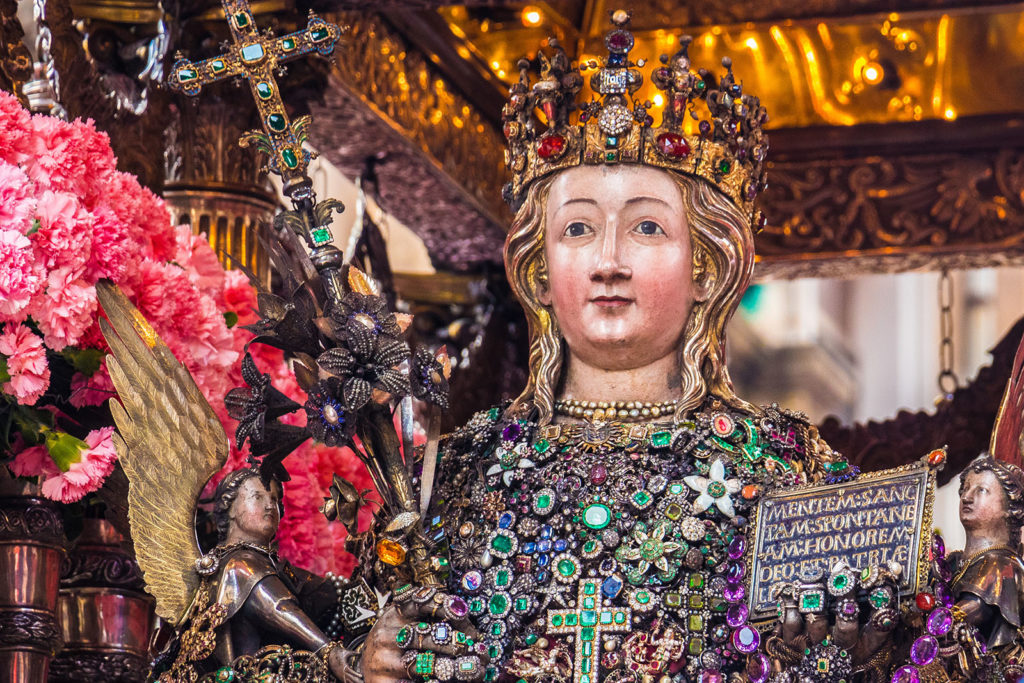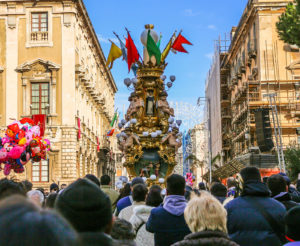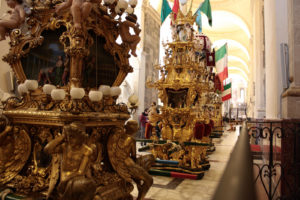The entire city gets involved in the feast and celebrations of
St. Agatha
.
 Every year on the 3rd, 4th and 5th of February, Catania offers its
patron saint
Every year on the 3rd, 4th and 5th of February, Catania offers its
patron saint
an extraordinary feast, including processions in the places of her martyrdom, fireworks, a tour of the Saint’s Bust around the city and the day of the candelore (giant candelabras).
The candelore are an interesting popular custom.


Tall candelabras are paraded and pass in front of the Abbey of St. Agatha.
Tradition has it that they weigh as much as those asking for the Saint’s protection and are carried on the shoulders of between 4 and 12 people. The candelabras lead the procession and always march in the same order. The
candelabra of Monsignor Ventimiglia
comes first,followed by the candelabra of the inhabitants of the San Giuseppe La Rena quarter, then that of the gardeners and florists. The fourth is the candelabra of the fishmongers, named the bersagliera because its bearer marches in a similar way to the
bersaglieri
.
Then come the greengrocers, the most elegant candelabra nicknamed the “signorina” (young lady), then the candelabra of the butchers, pasta makers, pizzicagnoli (delicatessen shopkeepers) and innkeepers (managers of taverns and inns, now restaurants and hotels). The tail of the procession is formed of the candelabra of the bakers, the heaviest of all, named “mamma” (mum), and that of the St. Agatha recreation club.